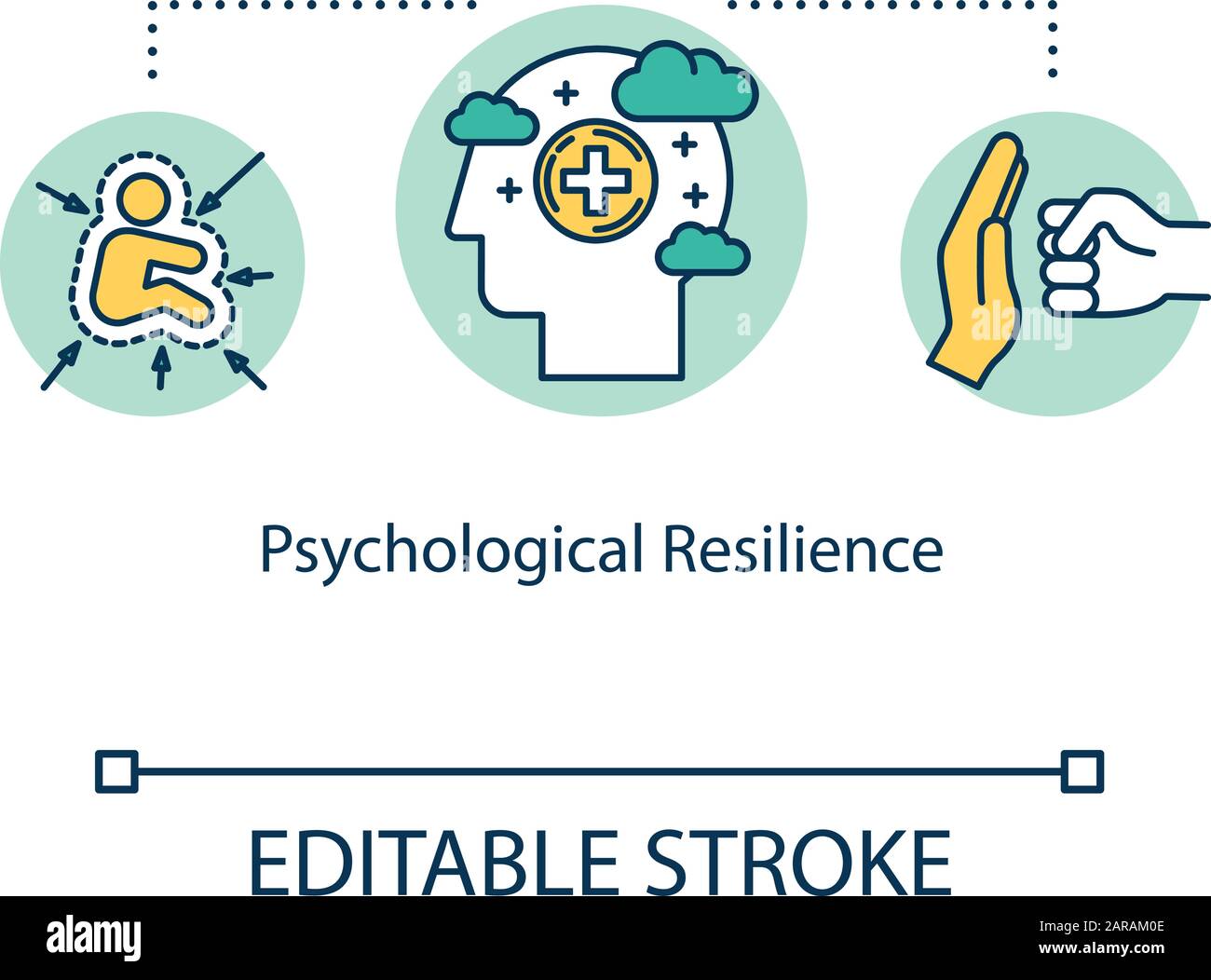Resilience And Mental Health: Overcoming Adversity

Table of Contents
Understanding Resilience and its Impact on Mental Health
Resilience is the ability to adapt and bounce back from difficult experiences. It's not about avoiding hardship, but about navigating it effectively and emerging stronger. The relationship between resilience and mental wellbeing is profound: higher resilience correlates with better mental health outcomes, reduced stress levels, and faster recovery from trauma. Resilience acts as a buffer, protecting against mental health issues like anxiety and depression.
- Resilience helps manage stress more effectively. Resilient individuals employ healthier coping mechanisms, reducing the negative impact of stressful situations on their mental state.
- Resilient individuals tend to have a more positive outlook. They focus on solutions rather than dwelling on problems, fostering a sense of hope and optimism.
- Resilience fosters problem-solving skills. They approach challenges with a proactive mindset, breaking down complex issues into manageable steps.
- Resilience promotes self-care and healthy coping mechanisms. This includes prioritizing physical and emotional wellbeing through activities like exercise, mindfulness, and spending time with loved ones. This proactive approach to self-care is a cornerstone of mental resilience. Developing strong psychological resilience is key to navigating life's difficulties.
Building Your Resilience: Practical Strategies
Building resilience is an active process that requires conscious effort and consistent practice. Here are some key strategies:
Cultivating a Positive Mindset
A positive mindset is crucial for building resilience. This involves challenging negative thoughts, practicing gratitude, and focusing on your strengths.
- Challenge negative thoughts with positive affirmations. Replace self-critical thoughts with encouraging statements.
- Keep a gratitude journal. Regularly writing down things you're grateful for can shift your focus towards the positive aspects of your life.
- Practice mindfulness exercises daily (even 5 minutes). Mindfulness meditation helps you become more aware of your thoughts and feelings without judgment, promoting emotional regulation.
- Identify and celebrate personal achievements. Acknowledge your accomplishments, no matter how small, to boost your self-esteem and confidence.
Developing Strong Social Connections
Strong social connections are a vital protective factor against stress and adversity. A supportive network provides emotional support, practical assistance, and a sense of belonging.
- Nurture existing relationships. Spend quality time with loved ones and maintain open communication.
- Join clubs or groups that share your interests. Connecting with like-minded individuals fosters a sense of community and belonging.
- Don't hesitate to ask for help from loved ones. Lean on your support network when you're struggling.
- Consider joining a support group for added support. Support groups provide a safe space to share experiences and connect with others facing similar challenges. Building these social connections strengthens your emotional resilience.
Adopting Healthy Lifestyle Habits
Physical health significantly impacts mental wellbeing and resilience. Prioritizing self-care through healthy habits strengthens your ability to cope with stress and adversity.
- Aim for at least 30 minutes of moderate-intensity exercise most days. Physical activity releases endorphins, reduces stress, and improves mood.
- Eat a balanced diet rich in fruits, vegetables, and whole grains. Nutrition plays a vital role in brain health and overall wellbeing.
- Get 7-9 hours of quality sleep per night. Sufficient sleep is essential for physical and mental restoration.
- Reduce or eliminate unhealthy habits. Limiting alcohol and substance use promotes better mental and physical health. This holistic approach to wellbeing significantly boosts your mental resilience.
Seeking Professional Support for Building Resilience and Mental Health
While building resilience is largely a self-directed process, seeking professional help is crucial when you're struggling.
- Don't hesitate to reach out for professional help if you're struggling. A therapist can provide personalized strategies for building resilience and coping with mental health challenges.
- A therapist can provide personalized strategies for building resilience. They can help you identify and challenge negative thought patterns, develop effective coping mechanisms, and manage stress.
- Therapy can help you develop coping mechanisms and manage stress. Different therapeutic approaches, such as Cognitive Behavioral Therapy (CBT) and Dialectical Behavior Therapy (DBT), can be highly effective.
- Many online and in-person resources are available. Explore different options to find a therapist who is a good fit for you.
Conclusion
Building resilience is a journey, not a destination. By actively cultivating a positive mindset, building strong social connections, prioritizing self-care, and seeking professional support when needed, you can significantly enhance your mental health and equip yourself to overcome adversity. Remember, developing resilience is a crucial step in protecting your emotional wellbeing and navigating life's inevitable challenges. Start building your resilience today – your mental health will thank you for it. Invest in your mental resilience and experience the transformative power of overcoming challenges.

Featured Posts
-
 Michael Schumacher Are Un Nepot Imagini Cu Noua Familie
May 20, 2025
Michael Schumacher Are Un Nepot Imagini Cu Noua Familie
May 20, 2025 -
 La Decision De Schumacher Una Conversacion Reveladora Antes De Su Regreso En 2010
May 20, 2025
La Decision De Schumacher Una Conversacion Reveladora Antes De Su Regreso En 2010
May 20, 2025 -
 Hmrc Refund Check Millions May Be Eligible For A Payout
May 20, 2025
Hmrc Refund Check Millions May Be Eligible For A Payout
May 20, 2025 -
 Recenzija Nova Drama I Glumacka Postava Na Jutarnjem Listu
May 20, 2025
Recenzija Nova Drama I Glumacka Postava Na Jutarnjem Listu
May 20, 2025 -
 Robert Pattinsons New Project Practice With Suki Waterhouse
May 20, 2025
Robert Pattinsons New Project Practice With Suki Waterhouse
May 20, 2025
Latest Posts
-
 Wife Of Ex Tory Councillor Challenges Racial Hatred Tweet Sentence
May 21, 2025
Wife Of Ex Tory Councillor Challenges Racial Hatred Tweet Sentence
May 21, 2025 -
 Court To Hear Appeal In Racial Hatred Tweet Case Against Ex Councillors Wife
May 21, 2025
Court To Hear Appeal In Racial Hatred Tweet Case Against Ex Councillors Wife
May 21, 2025 -
 Southport Attack Councillors Wife To Appeal 31 Month Sentence For Online Post
May 21, 2025
Southport Attack Councillors Wife To Appeal 31 Month Sentence For Online Post
May 21, 2025 -
 Appeal Launched Against 31 Month Sentence For Anti Migrant Social Media Post
May 21, 2025
Appeal Launched Against 31 Month Sentence For Anti Migrant Social Media Post
May 21, 2025 -
 Jailing Of Tory Councillors Wife For Inciting Racial Hatred In Southport
May 21, 2025
Jailing Of Tory Councillors Wife For Inciting Racial Hatred In Southport
May 21, 2025
